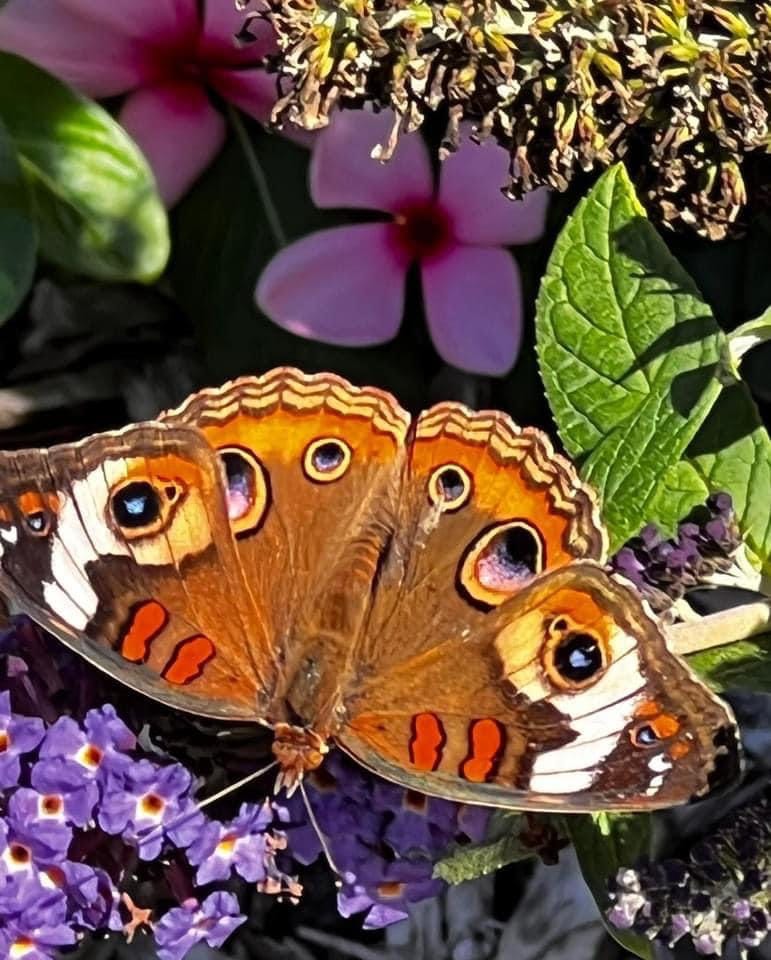Music and Memory
Anamnesis. My friend Michael let fly that beautiful little word in conversation one afternoon, and it has been fluttering about in my mind ever since. It is a lovely word to say slowly over and over. It sounds like what it is: a mystery. And it is no wonder why I find it so beautiful – it is the word for our supernatural memory at work, a wonderful and real kind of time travel to the land of the Divine ‘now’. Anamnesis, it turns out, is what we are experiencing at Mass when we hear the priest say, “Do this in memory of Me”. Do this….in memory.
Anamnesis is a powerful concept by which the Church explains that (in the Mass) we are not only remembering the Sacrifice of 2000 years ago, but in the very act of remembering it, we are placed right back into it. It is a memory but also is the real thing, a participation in the one sacrifice. Memory, in this case, is taken up sacramentally and brings us to the foot of the Cross.
This is how my friend Michael explained it. I could feel his own wonder seeping through the words. And ever since, I have been trying to pin it down and hold it tightly in my mind. But it is odd. Just when I think I have grasped the concept of this mind-boggling reality of being in two times at once, Anamnesis flits off like a veritable butterfly on the wing. Divine realities will not be pinned down by finite minds. At best, we hold them for a while in our cupped wonder but they inevitably flutter away into the infinite expanse of God. We must be content to rejoice that it IS so without knowing the HOW so. But as is the gracious way of God with each soul, He has led me to make what must seem a strange resolution. I received this inspiration in prayer which has become, metaphorically speaking, my own personal Anamnesis.
As a spiritual resolution, I have simply made a promise to listen to Classical Music on a daily basis. What kind of holy resolution is that, you may wonder. I wondered that myself. But it came to me wrapped in the actual grace of one particular moment, as actual grace is wont to do, on an ordinary Wednesday morning. I was running errands. Through a random switch of the radio, I happened to hear the second movement of an oboe concerto by Tomaso Albioni – I can’t even tell you which one. It filled the car with this tender sweetness – a veritable calling card of God’s presence. I was inexplicably moved to tears at its loveliness. And I felt the sudden and surprising ache of hunger in the middle of my soul. I swear that oboe was chiding me: “return to the beauty you have left behind.” In a veritable Augustinian moment I felt an urgency to ‘pick up and...listen’. And that is what I resolved to do.
I have a history with Classical Music. I grew up with it. It has been my father’s finest legacy to me. You see, I am a ‘feeler’. I feel everything in a big way. My father understood this because I inherited those large feelings from him. I did not know it as a child, because he had spent long years putting his feelings under control as any true grown up should. But they were there bubbling beautifully underneath his measured ways. He invited me into his secret early on. That Classical Music was a friend and comrade to the feelers of the world. That it led us to a safe place of needed release for our deeper emotions. I understood this quite intuitively by simply listening to all that my father served up to me on a daily basis; a steady feast of Mozart, Handel, Tellemann, Vivaldi, and Beethoven. It was a feast served in all proportion, letting my feelings taste and see without getting “glutted”. Classical music led me high into the catharsis my feelings craved and so desperately needed but brought me safely back to the earth in its strong arms without crashing me exhausted to the ground. I always felt energized at the end of a Beethoven symphony without exactly knowing why. Classical music demanded the best of my feelings and I came to rely on its ways to calm my heart and lift me up, to stir beauty and poetry within me, which it always faithfully did. I was content not to know the how of it. I just listened because it was beautiful and my father loved me enough to share it with me. When he put on Beethoven’s 9th symphony and invited me to sit with him and listen, we became two feelers simply running the moors of music together with emotional abandon without having to explain ourselves to anyone.
Sadly, somewhere in middle age I drifted away from it. I am not sure why or when. It just happened as many things do in middle age, little by little. I settled into a habit of ‘easy listening’ pop - which sings mostly about a love of which it has no clue, or as one more astute friend called it, “erotic self-pity”; this kind of music is slow poison for the feelers among us. It weakens us and makes us lazy. It is pleasant but makes no demands; or perhaps its demands are more dangerous than we think. This music edges us into what is, at best, the emotional shallows where we wander aimlessly with no purpose but to wander. I have felt this. After a steady diet of ‘easy listening’ pop music I felt weary and wallowing in a vague unsatisfied neediness. Easy emotions bought so cheaply are a dangerous thing for a feeler. This too I felt intuitively.
However, now I have decided to examine the why of classical music a little more closely. I am not a musician. I know next to nothing of musical theory. I am sure there is a deeper, more intelligent reason for the superior nature of classical music that I do not presume to know. But I have discovered my own personal why. Classical music comes in movements. So does life. And since art imitates nature, this music can be said to imitate what is most true about us: that we move. That we pass through rising and falling movements of joy, sorrow, exaltation and back again in one life.
When we listen to this music, we learn to be patient with each movement and what it reveals. There may be pathos here, triumph there, unbearably sweet aches which our souls can hardly contain, suddenly melting into steady happy marches on flat land. We do not stop at any one in particular and define the whole piece as just that. We must patiently follow until the end. Each of these feelings is an integral part of the whole and each makes no sense individually until suddenly it does at the end. The music takes us on a journey that imitates our life. It is a thing so naturally optimistic. It exhorts us to persevere through movements of sadness, loneliness, restlessness because there is the promise of exaltation at the end. It does not let us tarry too long with the joyful bits either, reminding us that we have not here a lasting city. Joy too must be surrendered in order that the next note in the music may sound. The end is the thing. If we are patient, we at last find ourselves crashing onto the glorious shore of catharsis realizing that all that went before has led to this – has been a cause for this joy. And suddenly we discover that music has revealed our life to us in metaphoric microcosm. But the most wonderful thing is this. We can listen to this music over and over again and each time we might hear something different; another particular facet which gives us a more deepened understanding of the glorious brilliance of the whole. This too is an imitation of a life. We can listen to our life over and over again because we have the power of memory. By some magical muse I cannot explain, our memory can travel with ease from past to present giving us the unique experience of being in two times at once, continually showing us new facets of our past lives which shed insight on our present and hint at the brilliance of our future. Anamnesis. Music has brought me to this place of discovery.
For, long ago and unbeknownst to me, when I was listening to one piece of music and then another – Mozart here, Beethoven there as I went about my life’s business – the music was somehow gathering up all those particulars of time and place and wrapping itself around them like a silvery cocoon which would later open to reveal the released and startling flutter of life’s past beauty to me in my future tense.
Each CD dusted off and played brings this strange sort of time travel. Handel’s Water Music finds me cooking in a steamy summer kitchen hearing the voices of children splashing in an old metal pool just outside the ripped screen door. My ten year old, drunk with power, wielding that hose with the abandon of a despot flinging spray to all parts of the Universe, including through the door at me. I remember being grateful for that sudden shock of misty cold spray on my legs, as the baby within me suddenly leapt as if impatient for the joy that is a garden hoses awaiting him on this other side of birth. I see laughing faces and the glorious rapture that is the first day of summer. A Telemann Oboe Concerto finds me reading The Physics of Aristotle late into the night and looking up to exclaim quite loudly to the wall my sudden discovery that, “There are causes. Four of them. We CAN explain the world around us. We are not in a random Universe!” Telemann smiles his ascent to my astonished self with a sweet flourish of his weaving oboe. Edgar Meyer’s Short Trip Home finds me rocking a baby in a sunlit room smelling a warm little head and feeling the surge of new mother love that defies all poetry to express. Yet strangely Edgar Meyer assures me that he understands perfectly. Beethoven’s String Quartets bring me to a comfortable chair and my first magical taste of Emily Dickinson’s poetry, winter light through a window, and a mug of coffee steaming in my hand. Ludwig and Emily are forever linked in this musical embrace. At the very first note of his sweet violin, I see her at the top of her Amherst stairs nodding down at me, softly drifting down another poem to my eager eyes. Chopin’s Piano Concerto #2 reminds me what it was like to fall in love and what glorious, magical passion there was in that fall. Mozart brings memories of Sunday dinners and the good china and grass scented air from the open window in early spring. Handel’s Messiah wraps me in the smell of lilies, the taste of chocolate and Easter alleluia’s long silent spilling over in champagne toasts to the Risen King, who indeed “shall reign forever and ever”. And on and on it goes, and me walking enchanted through these butterflies of time.
My mind is filled with memories of a treasured past released in fluttering, happy abandon from the notes of these musical time-cocoons opening one by one. And I, a happy time traveler in God’s “forever-now”, race through a world that is suddenly replete with the efficacious ache of utter gratitude growing into praise; praise that I am blessed with the glory of a feeling nature that remembers through music; memories shining with God’s eternal, transfiguring light on my little life: past, present and future. This is my anamnesis; that fluttering word released by a friend into my cupped wonder once in conversation. I do not ask HOW this can be so. I can only rejoice that it IS so. And rejoicing in the Lord must be my strength.
Photos: by the author, Denise Trull




